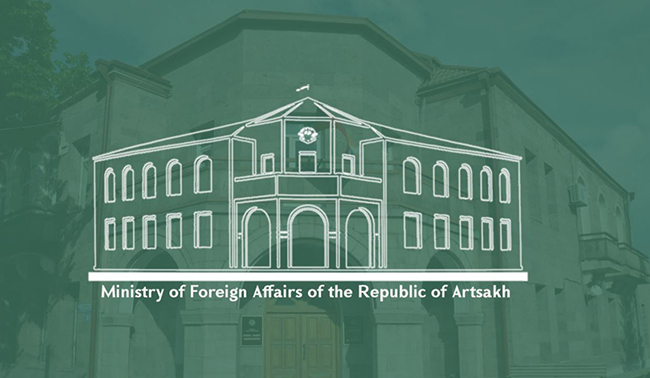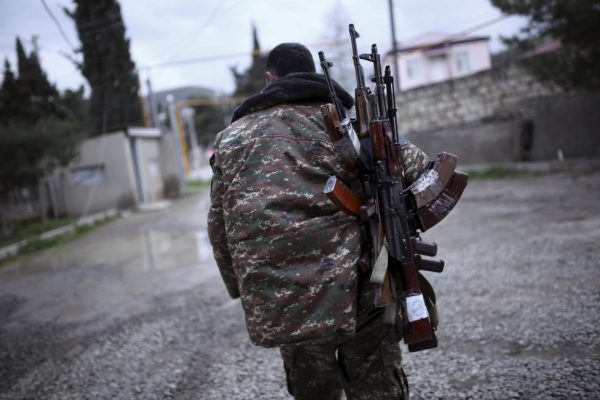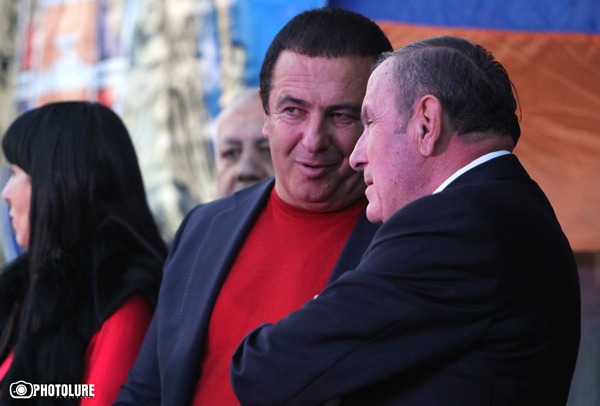
PUBLIC STATEMENT
Following violent attacks on civil society activists attempting to hold a festival of Azerbaijani films in Armenia, Amnesty International has called on the Armenian authorities to carry out a prompt and impartial investigation into the attacks and to bring those responsible to justice.
The organisation is deeply concerned by the Armenian authorities’ failure to protect festival organisers from attacks intended to prevent them from showing the Azerbaijani films, and is urging the authorities to make appropriate arrangements to ensure the organisers can safely go ahead with the festival.
“Stop” film festival is intended to educate Armenians about Azerbaijani culture in an attempt to start bridging the divide between Armenia and Azerbaijan, who have been in dispute over sovereignty of the Nagorno-Karabakh since a conflict in the early 1990s. Both governments regularly stoke nationalist sentiment against the other country for political reasons.
On 12 April the festival was cancelled in Gyumri, north-west Armenia, after dozens of protesters blocked the festival venue and physically assaulted Giorgi Vanyan, the festival organiser and chairman of the local Caucasus Centre for Peace Making Initiatives. He was prevented from leaving the city by protestors and forced to publicly announce the cancellation of the festival. On the same day, Giorgi Vanyan published a statement in which he said he had received threats from the local Armenian authorities.
Following the cancellation of the film festival in Gyumri, the organisers announced plans to hold the festival at the Helsinki Citizens’ Assembly (HCA) office in Vanadzor, northern Armenia, on 17 April.
However, one day before the festival, approximately 200 people including students, political activists, former military personnel and representatives of the local administration gathered in front of the HCA office. The protestors were reportedly led by Yerkarapah, a union of veterans from the conflict between Armenia and Azerbaijan over Nagorno-Karabakh, and shouted, “traitors”, “shame” and “Turks”. They demanded the cancellation of the event.
Some protestors then forced their way into the HCA office. Artur Sakunts, director of the HCA, told Amnesty International that protesters vandalised office equipment and shouted threats and abusive language at staff.
HCA staff informed the protestors that organisers had postponed the festival. However the protestors demanded the cancellation of the event and threw eggs and rocks at the office. Several office windows were broken and one of the employees’ was injured when a rock hit her leg.
Several police officers accompanied the protestors and were present throughout the protest, but did not take any action to intervene to ensure the safety of the staff members or to stop acts of violence. Artur Sakunts told Amnesty International that employees of the local administration and at least four police officers were present at the scene, but they simply watched as the attacks on the HCA office continued. The organisation also telephoned the Vanadzor Police Station as soon as people gathered outside the office asking for an increased police presence, but additional police officers only arrived several hours later, after the crowd had dispersed.
Local police have started an investigation into the 16 April incident; however the organisers have concerns regarding the impartiality of the investigation given the political nature of the case and the prejudicial statements made by the authorities in charge of the investigation. On 17 April the Lori regional prosecutor was quoted by the press as saying “throwing stones and eggs is a form of civic protest” and that the attack on the NGO did not constitute public disorder or an action that would merit police intervention.
Amnesty International reminds the Armenian authorities that they have a positive duty under international human rights law to protect those seeking to peacefully exercise their right to freedom of expression from attempts to disrupt them by those who object to their messages. By failing to protect film festival organisers from attack the Armenian authorities have failed in their international obligations to guarantee freedom of expression to all citizens, even when such expression is perceived as controversial.
Background
The Caucasus Centre for Peace Making Initiatives, based in Yerevan, had in the past made several attempts to organise Azerbaijani Film Festivals in 2009, 2010 and 2011. Each time, the event was cancelled because of security concerns and allegations that pressure had been applied on organisers and venue owners. The 2012 festival consisted of four short films made in Azerbaijan in 2007 and 2008 of a non-political nature.
Armenia and Azerbaijan remain locked in a dispute over the breakaway region of Nagorno-Karabakh. Following the collapse of Soviet Union the simmering conflict with Azerbaijan exploded into outright war resulting in the deaths of thousands and displacement of hundreds of thousands of ordinary civilians. Local authorities in the Nagorno-Karabakh region declared unilateral independence in 1991 and have maintained de facto autonomy with a fragile cease-fire coming into effect in 1994.





















































